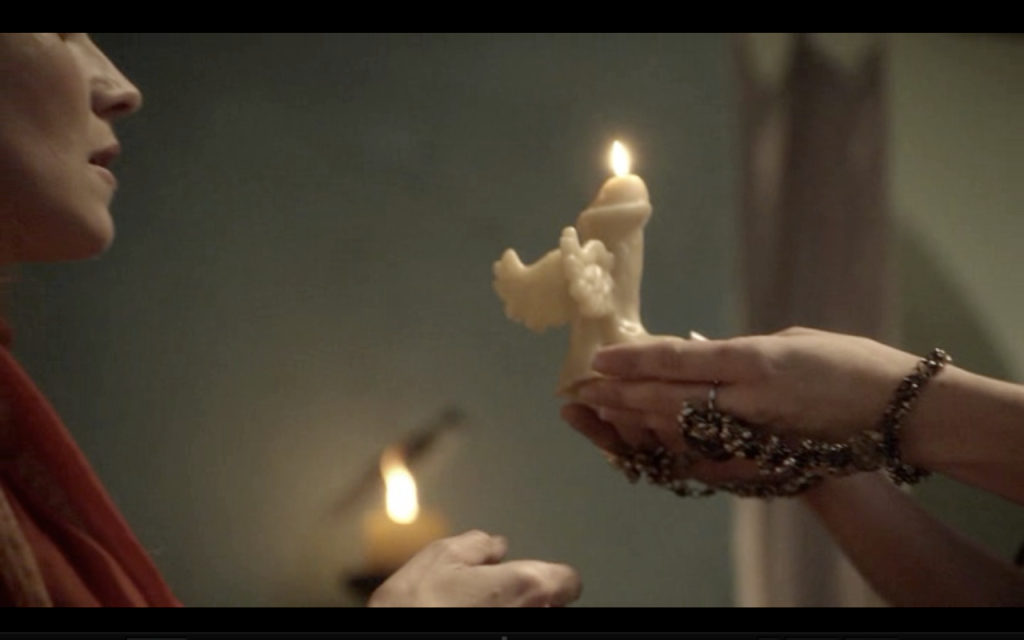Oh, Sting, they just don't write em like they used to.
I started to write my blog tonight and, after a long day, thought "I got nothin." But that's never true. If there's a day when I'm truly not up for writing, I'll post something from Ovid or The Aeneid. I was going in this direction tonight, when I realized that I wanted to talk about these two. Odysseus, in the travels chronicled in
The Odyssey, found lost himself all over Magna Graecia, which of course included Sicily and other settlements in mainland Italy. The location of Scylla and Charybdis, has long thought to be Sicily's Strait of Messina. So who/what were Scylla and Charybdis?
Scylla was, according to The Odyssey, a land monster who stood high atop a cliff and would chomp on the crew of the ship as it sailed by. Some of her characteristics: 12 tentacles, a cat's tail, dog heads ringing her waist, 4 eyes, 6 heads... Can we pile anything else onto this thing?
Charybdis was a giant yawning whirlpool within an arrow's length from Scylla's post.
Monsters were often something perfectly wonderful before they became monsters. Sounds like marriage (rimshot!). This seems especially true of the female monsters we come across in the lore of Greece. I'd like to be knowledgeable enough about other pantheons and societies to make an actual comparison. I can't go saying Greece was more sexist than their counterparts, even tho they did take a perfectly lovely Women's Mystery and insert kidnapping into it, Dionysus, and have it run by a man. But I digress. Eleusis is for the summer.
As the various legends go, Scylla was a naiad (water nymph). Someone, either Posideon or another sea divinity, Glaucus, fell in love with her. She evaded him by going up onto the land where he (whichever "he" it was) couldn't follow. Either Poseidon's wife Amphitrite poisoned her bath or Circe did after falling for Glaucus who asked Circe for a spell to win Scylla. Nice, huh? The poor girl was trying to avoid being pursued and look what she got for her troubles!
Charybdis, another naiad, was the daughter of Poseidon and Gaia. She would take land and villages and forests for her Father while in the form of a whirlpool. For her loyalty to her father, Uncle Zeus came along and turned her into a monster, lest she help Dad take over his territory.
I find it sadly fitting that these women, who came to be known as the first "rock and a hard place," found themselves in that very same situation.
But not to end on a down-note, here's a favorite poem by Ovid
(it only looks long. It's worth the read and delicious licentious!)
To his Mistress...
Your husband will be with us at the Treat;
May that be the last Supper he shall Eat.
And am poor I, a Guest invited there,
Only to see, while he may touch the Fair?
To see you Kiss and Hug your nauseous Lord,
While his lewd Hand descends below the Board?
Now wonder not that Hippodamia's Charms,
At such a sight, the Centaurs urged to Arms;
That in a rage they threw their Cups aside,
Assailed the Bridegroom, and would force the Bride.
I am not half a Horse (I would I were):
Yet hardly can from you my Hands forbear.
Take then my Counsel; which observed, may be
Of some Importance both to you and me.
Be sure to come before your Man be there;
There's nothing can be done; but come how e'er.
Sit next him (that belongs to Decency);
But tread upon my Foot in passing by.
Read in my Looks what silently they speak,
And slily, with your Eyes, your Answer make.
My Lifted Eyebrow shall declare my Pain;
My Right-Hand to his fellow shall complain;
And on the Back of a Letter shall design;
Besides a Note that shall be Writ in Wine.
When e'er you think upon our last Embrace,
With your Fore-finger gently touch your Face.
If you are pleased with what I do or say,
Handle your Rings, or with your Fingers play.
As Suppliants use at Altars, hold the Board,
When e'er you wish the Devil may take your Lord.
When he fills for you, never touch the Cup;
But bid th' officious Cuckold drink it up.
The Waiter on those Services employ.
Drink you, and I will snatch it from the Boy:
Watching the part where your sweet Mouth hath been,
And thence, with eager Lips, will suck it in.
If he, with Clownish Manners, thinks it fit
To taste, and offer you the nasty bit,
Reject his greasy Kindness, and restore
Th' unsavory Morsel he had chewed before.
Nor let his Arms embrace your Neck, nor rest
Your tender Cheek upon his hairy Breast.
Let not his Hand within your Bosom stray,
And rudely with your pretty Bubbies play.
But above all, let him no Kiss receive;
That's an Offence I never can forgive.
Do not, O do not that sweet Mouth resign,
Lest I rise up in Arms, and cry, 'Tis mine!
I shall thrust in betwixt, and void of Fear
The manifest Adult'rer will appear.
These things are plain to Sight; but more I doubt
What you conceal beneath your Petticoat.
Take not his Leg between your tender Thighs,
Nor, with your Hand, provoke my Foe to rise.
Which I, myself, have practised all before!
How oft have I been forced the Robe to lift
In Company to make a homely shift
For a bare Bout, ill huddled o'er in hast,
While o'er my side the Fair her Mantle cast.
You to your Husband shall not be so kind;
But, lest you should, your Mantle leave behind.
Encourage him to Tope; but Kiss him not,
Nor mix one drop of Water in his Pot.
If he be Fuddled well, and Snores apace
Then we may take Advice from Time and Place,
When all depart, when Complements are loud,
Be sure to mix among the thickest Crowd.
There I will be, and there we cannot miss,
Alas, what length of Labour I employ,
Just to secure a short and transient Joy!
For Night must part us; and when Night is come,
Tucked underneath his Arm he leads you Home.
He locks you in; I follow to the Door,
His Fortune envy, and my own deplore.
He kisses you, he more than kisses too;
Th' outrageous Cuckold thinks it all his due.
But, add not to his Joy, by your consent,
And let it not be given, but only lent.
Return no Kiss, nor move in any sort;
Make it a dull and a malignant Sport.
Had I my Wish, he should no Pleasure take,
But slubber o'er your Business for my sake.
And what e'er Fortune shall this Night befall,
Coax me to-morrow, by forswearing all.


 .
.





